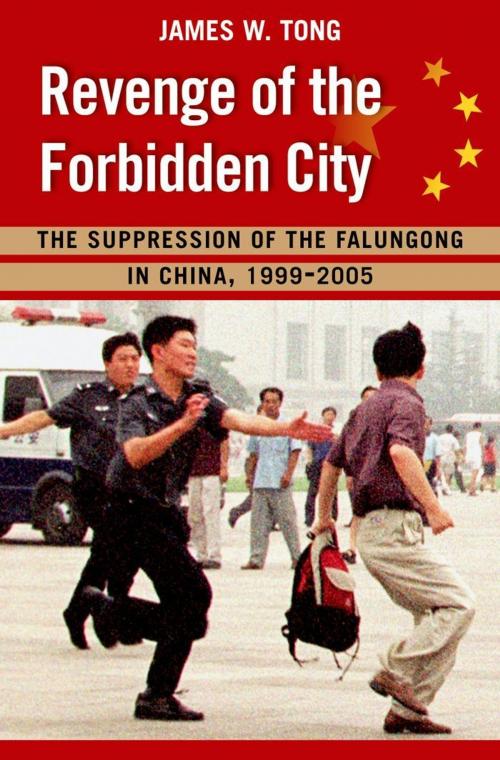Revenge of the Forbidden City
The Suppression of the Falungong in China, 1999-2005
Nonfiction, Religion & Spirituality, Eastern Religions, General Eastern Religions, Social & Cultural Studies, Political Science, International, Foreign Legal Systems, Social Science, Sociology, Marriage & Family| Author: | James W. Tong | ISBN: | 9780199888528 |
| Publisher: | Oxford University Press | Publication: | October 14, 2009 |
| Imprint: | Oxford University Press | Language: | English |
| Author: | James W. Tong |
| ISBN: | 9780199888528 |
| Publisher: | Oxford University Press |
| Publication: | October 14, 2009 |
| Imprint: | Oxford University Press |
| Language: | English |
The Falungong movement originated in 1992 as a system of breathing exercises designed to promote health and well-being. Riding on the coattails of the qigong fever that swept through China, it attracted an extensive following until 1994, when the Chinese government suppressed the qigong movement. A series of protest rallies by Falungong organizations against local government repression set in motion an upward conflict spiral that culminated in the siege of the Party headquarters in Beijing on April 25, 1999, by more than 20,000 Falungong practitioners. Revenge of the Forbidden City begins with the shock of the Politburo against such insolent defiance, resolving to retaliate against the Falungong, a retaliation that represented "the most serious political incident" since the Tiananmen upheaval in 1989. James W. Tong reveals how the Chinese government's relentless, sustained repression of the Falungong movement typifies its response towards perceived internal threats. Though many claim that the Democratic reforms in China have eroded the government's ability to monitor and control its citizens, the success of the campaign to eradicate Falungong indicates otherwise: the government effectively implemented a multifaceted offensive involving unsparing suppression, pervasive propaganda, and coercive conversion. The successful execution of this complex campaign reveals the resilience of China's authoritarian institutions. Using empirical evidence and thorough analysis, Tong reveals the Chinese state's formidable ability to crush dissent and provides a cogent rebuttal to those who claim that the Communist government is on the verge of collapse. The definitive account of China's response to Falungong, Revenge of the Forbidden City is essential for any scholar interested in how the Chinese state actually operates.
The Falungong movement originated in 1992 as a system of breathing exercises designed to promote health and well-being. Riding on the coattails of the qigong fever that swept through China, it attracted an extensive following until 1994, when the Chinese government suppressed the qigong movement. A series of protest rallies by Falungong organizations against local government repression set in motion an upward conflict spiral that culminated in the siege of the Party headquarters in Beijing on April 25, 1999, by more than 20,000 Falungong practitioners. Revenge of the Forbidden City begins with the shock of the Politburo against such insolent defiance, resolving to retaliate against the Falungong, a retaliation that represented "the most serious political incident" since the Tiananmen upheaval in 1989. James W. Tong reveals how the Chinese government's relentless, sustained repression of the Falungong movement typifies its response towards perceived internal threats. Though many claim that the Democratic reforms in China have eroded the government's ability to monitor and control its citizens, the success of the campaign to eradicate Falungong indicates otherwise: the government effectively implemented a multifaceted offensive involving unsparing suppression, pervasive propaganda, and coercive conversion. The successful execution of this complex campaign reveals the resilience of China's authoritarian institutions. Using empirical evidence and thorough analysis, Tong reveals the Chinese state's formidable ability to crush dissent and provides a cogent rebuttal to those who claim that the Communist government is on the verge of collapse. The definitive account of China's response to Falungong, Revenge of the Forbidden City is essential for any scholar interested in how the Chinese state actually operates.















